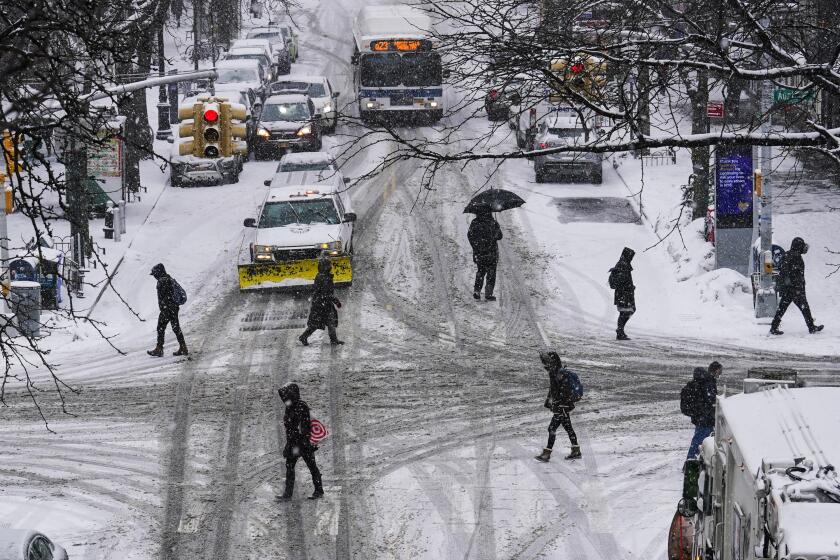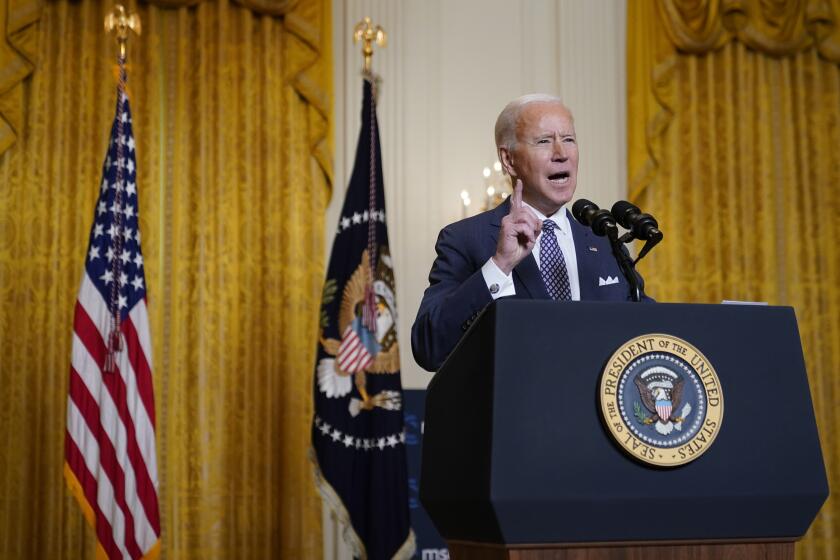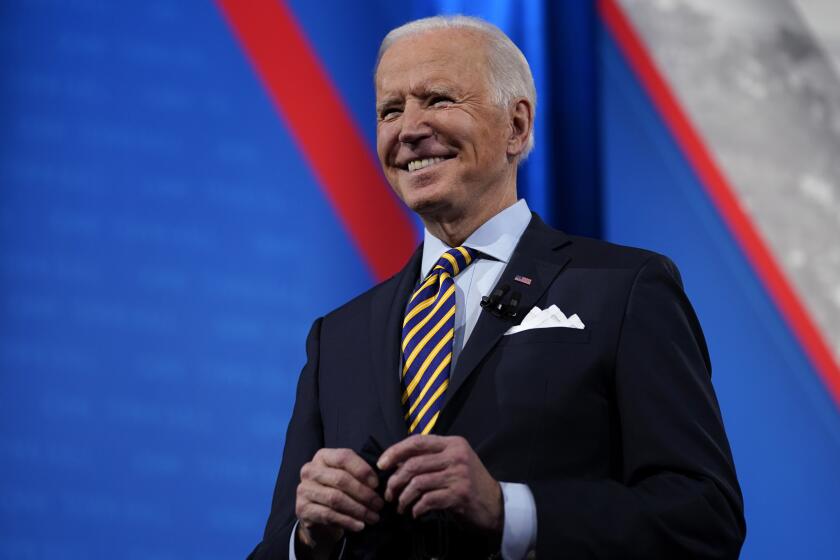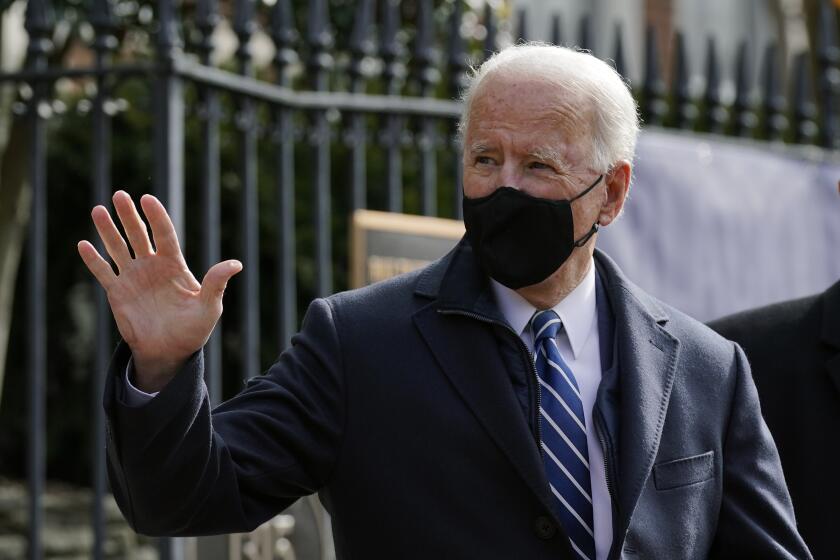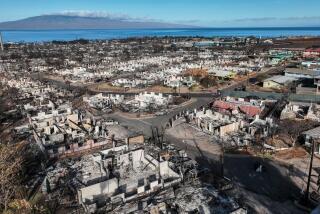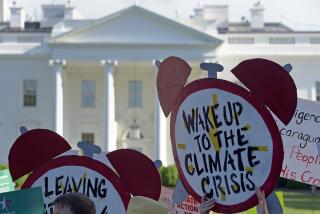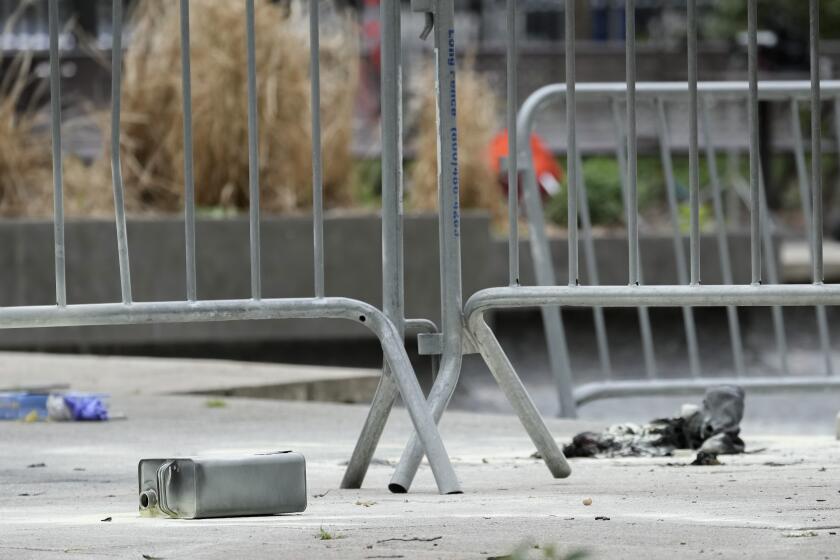Biden declares major disaster in Texas as federal aid flows
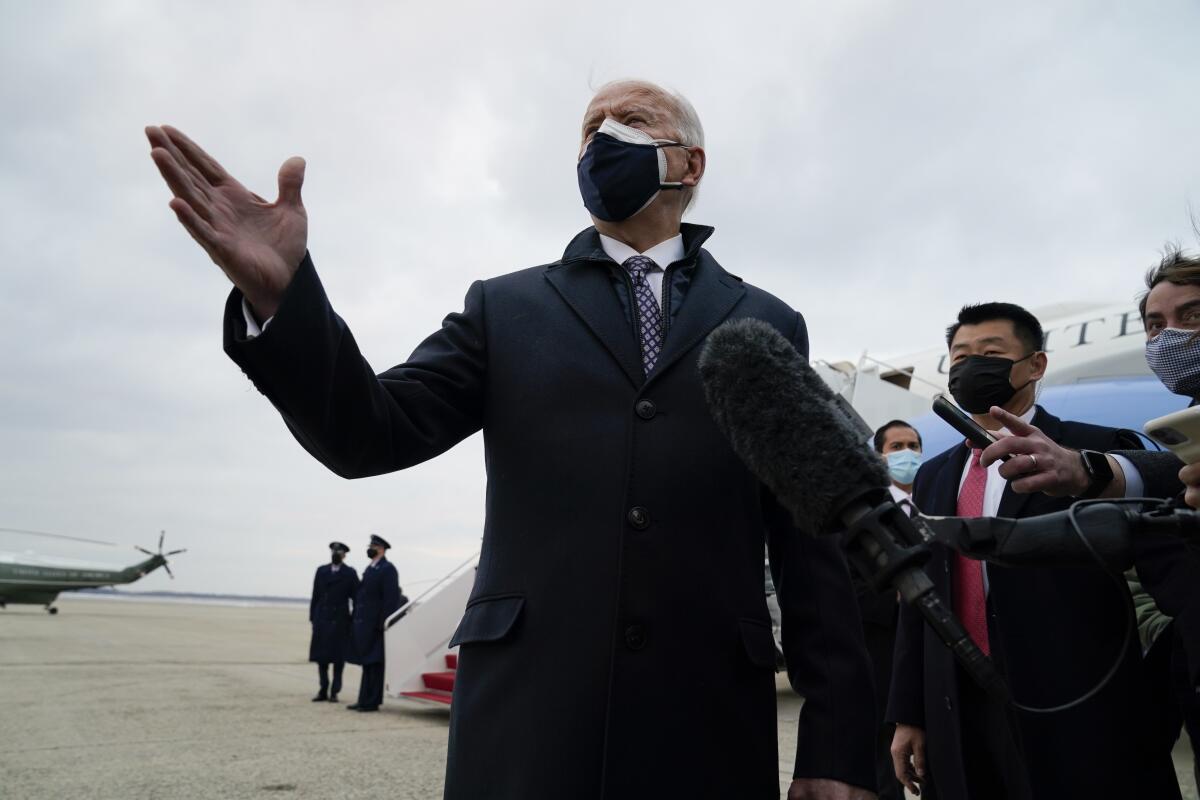
Add Mother Nature to the pile of crises on President Biden’s plate.
A month into the job and focused on the coronavirus, Biden is seeing his disaster management skills tested after winter storms plunged Texas, Oklahoma and neighboring states into an unusual deep freeze that left millions shivering in homes that lost heat and power, and in many cases water.
At least 69 deaths across the U.S. have been blamed on the blast of harsh weather.
Deadly blast of winter overwhelmed the electrical grid and left millions in the deadly cold this week.
The White House announced Saturday that the president had declared a major disaster in Texas, and he has asked federal agencies to identify additional resources to address the suffering.
Biden came into office Jan. 20 promising to tackle a series of brewing crises, starting with the COVID-19 pandemic and its ripple effects on the economy. He tacked on systemic racism and climate change as top priorities. And now he’s contending with storms that have not only imperiled Americans but also delayed the shipment and administration of millions of doses of COVID-19 vaccines.
Biden said Friday that he hopes to travel to Texas next week but doesn’t want his presence to distract from the recovery.
President Biden officially reaffirmed U.S. fealty to the transatlantic alliance at two global conferences Friday, seeking to regain allies’ trust.
“They’re working like the devil to take care of their folks,” Biden said of Texas officials. He said he’d make a decision early next week about travel.
Biden, who portrayed himself during the campaign as the experienced and empathetic candidate the nation needed, is working on several fronts to address the situation — and to avoid repeating the mistakes of predecessors who got tripped up by inadequate or insensitive responses in times of disaster.
Part of the job of being president is responding to the destruction left behind by earthquakes, hurricanes, tornadoes and other natural disasters, or events like deadly mass shootings, or even acts of terrorism.
Some have handled such situations better than others.
George W. Bush earned praised for his leadership after the Sept. 11, 2001, terrorist attacks but stumbled during his administration’s halting response to the humanitarian disaster that unfolded in New Orleans after Hurricane Katrina struck the Gulf Coast four years later.
Barack Obama said he should have anticipated the blowback he got for going to the golf course right after he condemned the beheading of a kidnapped American journalist by Islamist militants in 2014. Obama was vacationing on Martha’s Vineyard at the time.
Donald Trump was criticized for tossing rolls of paper towels into a crowd of people in Puerto Rico who had endured Hurricane Maria’s pummeling of the island in 2017. He defended the episode, saying the people were “having fun.”
Bill Clinton, who famously claimed during the 1992 presidential campaign that “I feel your pain,” was a natural at connecting with disaster victims.
The event marked an early test for Biden to make good on his inaugural speech promise to promote ‘unity’ and be ‘a president for all Americans.’
Just this week, Republican Sen. Ted Cruz of Texas showed how quickly one bad move during a crisis can become a public relations disaster for a politician.
Cruz came under attack for traveling to Mexico while his constituents suffered without power, heat and running water. His explanation — that his daughters pushed for the getaway because they were out of school — was particularly panned. Cruz later said the trip was a mistake.
Biden has tweeted about Texas and the other affected states, and the White House has issued numerous statements aimed at demonstrating that the federal government is in command of the situation.
The president is getting regular updates from his staff and already declared states of emergency in Texas, Oklahoma and Louisiana before Saturday’s official disaster declaration for Texas.
The Federal Emergency Management Agency also has shipped dozens of generators and truckloads of supplies, including fuel, water, blankets and ready-to-eat meals, to the affected areas.
Biden has spoken to the governors of the seven states most affected by the winter weather. He tweeted a photo of himself on the phone with Republican Gov. Greg Abbott of Texas.
Oklahoma’s Republican Gov. Kevin Stitt, a staunch supporter of Trump’s, was quick to praise Biden for swift action.
The first Catholic president since JFK, Biden has a liberal faith more aligned with membership of the largest U.S. church, whose leaders skew conservative.
After speaking with Biden by telephone earlier this week, Stitt specifically thanked the president for “taking the time to reach out this afternoon and offer the federal government’s help for Oklahomans. We had a very productive call and I look forward to working together to find solutions as we recover from this historic storm.”
Barbara Perry, director of presidential studies at the University of Virginia’s Miller Center, said Biden is well-suited to deal with the disaster because of his decades of service in the U.S. Senate and as a former vice president and because of “his genuine concern for people.”
“He’s got to show empathy right off the bat,” Perry said in an interview. “It’s important for a president to go to a place that’s been battered, but be careful about the footprint. He doesn’t want to make things worse.”
Biden, should he decide to visit Texas next week, could also use the trip to press his point that climate change is real and must not go unaddressed, and that the state could do things like winterize its power plants to be better prepared for future storms, Perry said.
But he should take care to not do so in a scolding kind of way.
“We know he cares about climate change, and this is a way to convince people,” Perry said.
Associated Press writer Sean Murphy in Oklahoma City contributed to this report.
More to Read
Get the L.A. Times Politics newsletter
Deeply reported insights into legislation, politics and policy from Sacramento, Washington and beyond. In your inbox three times per week.
You may occasionally receive promotional content from the Los Angeles Times.
